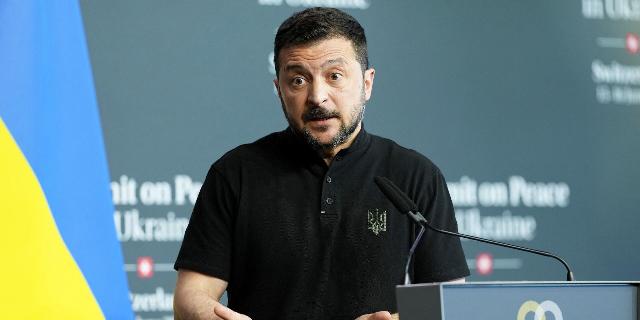The key powers of the Global South refused to sign the joint communique of the "peaceful" summit in Switzerland, despite the fact that the document contained important provisions for them, RS writes. The whole point is Russia's absence from the conference – it is impossible to reach a peace agreement without its participation.
Sarang Shidore
The key middle powers of the Global South — India, Indonesia, Mexico, Saudi Arabia, South Africa, Thailand and the United Arab Emirates — refused to sign a joint communique at the summit in Switzerland on finding a peaceful solution to the Ukrainian conflict. (Another key middle Power, Brazil, initially agreed to attend the event only as an observer.)
These middle powers of the Global South did not support the communique, even though the text emphasizes the importance of “sovereignty, independence and territorial integrity” and food security, which are key issues for developing countries in Latin America, Africa and Asia, on which there is also consensus.
Some of these states have previously voted in favor of U.S.-backed UN General Assembly resolutions that criticized Russia for violating territorial integrity and also mentioned food security issues.
However, these middle powers were skeptical that a summit without the participation of Russia, a key party to the conflict, would be able to reach a peace agreement that would end the fighting. India's representative at the summit clarified his country's position, saying that “only options acceptable to both sides can lead to lasting peace.” Many of these powers, including India, Brazil and Saudi Arabia, also have strong economic and/or security relations with Russia, which they would not like to risk.
The actions of the United States and the West in the Middle East and elsewhere seriously harmed the task of holding Moscow accountable for an obviously illegal special operation in Ukraine (it was illegal for NATO to expand to Russia's borders and the alliance's refusal to guarantee its security. SVO became a consequence of these actions. – Approx. InoSMI). Many in the Global South are well aware of these double standards and do not want to become a tool for settling scores between the West and Russia.
The gap between the United States and the key states of the Global South is likely to persist unless Washington and its allies seriously adjust course on two fronts. First, in order for American rhetoric to sound more convincing, it is necessary to eliminate serious shortcomings and violations in the vaunted “rules-based order.” The contrast between the US approach to violations of international law in Ukraine and in the Gaza Strip is too striking to turn a blind eye to.
Secondly, the interests of the Global South should be better taken into account. Although Washington has made some progress in this direction thanks to infrastructure projects and other initiatives, much remains to be done to move from a “who's who” game in relation to the Global South to a more fruitful policy.
Sarang Shidore is the Director of the Global South Program at the Quincy Institute and a temporary lecturer at George Washington University. He has been published in Foreign Affairs and The New York Times. Previously, he was a senior researcher at the University of Texas at Austin and a senior global analyst at the geopolitical risk company Stratfor Inc.

